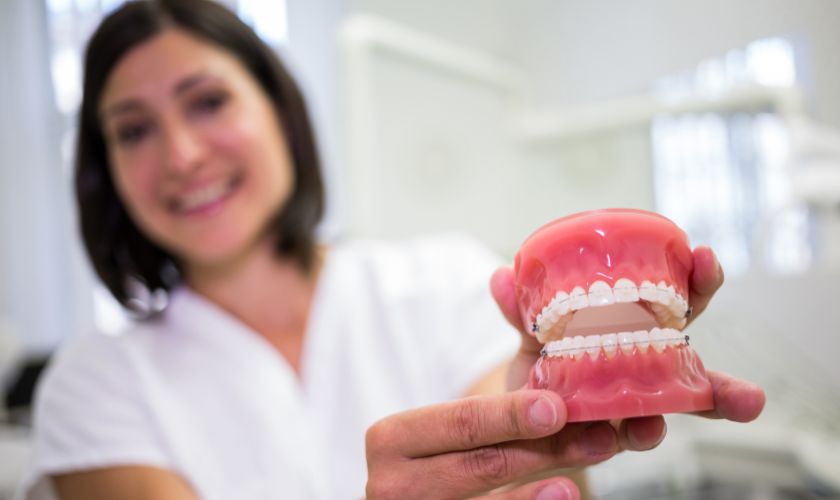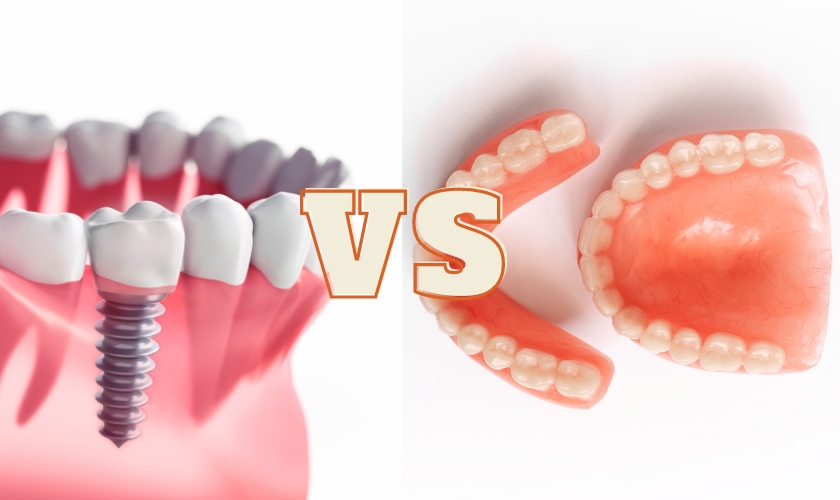
5 Essential Denture Aftercare Tips To Keep Your Smile Healthy
Are you one of the millions of people who wear dentures? If so, it’s essential to take proper care of them to ensure they last as long as possible and maintain their functionality. With these five essential denture aftercare tips, you can keep your dentures clean, lubricated, and in good condition. Whether you’re a longtime wearer or just starting with dentures, read on to learn how to best care for your dental appliance!
Clean And Dry Your Denture
One of the most important aspects of denture aftercare is keeping them clean and dry. Bacteria and fungus can easily grow on damp surfaces, which is why it’s crucial to keep your dentures as dry as possible.
To clean your dentures, make sure you’re using a soft-bristled brush specifically designed for dentures. Avoid using regular toothpaste, as it can be too abrasive and damage the surface of your denture. Instead, use a specialized cleaner recommended by your dentist.
When cleaning your dentures, be sure to remove any food particles or debris that may have accumulated throughout the day. You should also rinse them thoroughly under running water before putting them back in your mouth.
After you’ve finished cleaning your denture, dry them off with a soft towel or cloth before storing them in their case. This will help prevent moisture from building up on the surface of the appliance.
Remember to never let your denture soak overnight in water or other solutions since this can weaken its structure over time. By properly cleaning and drying out your dentures every day, you’ll help ensure they last longer while maintaining good overall oral hygiene.
Apply A Lubricant To Your Denture
Applying a lubricant to your denture is another essential aftercare tip that you should keep in mind. This step helps prevent any irritation or soreness caused by friction between your denture and gums.
There are different types of lubricants available, including gels, creams, and sprays. The type of product you choose will depend on your personal preference and comfort level.
When applying the lubricant, make sure to follow the instructions provided by the manufacturer carefully. Usually, a small amount is enough to provide adequate protection and comfort.
It’s also worth noting that some products may contain ingredients that could damage your denture material over time. Therefore it’s important to select a product specifically designed for use with dental appliances.
If you’re not sure which product is right for you or how to apply it correctly, consult with your dentist who can recommend suitable options based on your unique needs and preferences.
Don’t Over-Tighten Your Denture
When it comes to denture aftercare, one common mistake that people make is over-tightening their dentures. While you may think that tighter dentures will provide a better fit and prevent movement or slipping, going too tight can cause more harm than good.
Over-tightening your dentures can lead to discomfort, soreness, and even damage to the underlying gums and bone structure. This is because excessive pressure on the gums caused by tightly-fitted dentures can result in inflammation, infections, or even gum recession.
Instead of tightening your denture excessively, try adjusting it gradually until you find the right balance between comfort and stability. You should also avoid using adhesives or other materials to hold your denture in place as they can interfere with its fit and functionality.
If you experience any discomfort or pain while wearing your denture, seek professional advice from a dentist who specializes in prosthodontics. They’ll be able to assess the situation properly and recommend appropriate solutions such as relining or rebasing your existing prosthetic device.
Always remember that proper care for your dental prosthetics requires patience, diligence, and proper guidance from a trained dental health professional.
Keep Your Denture Clean And Dry
Keeping your denture clean and dry is crucial for maintaining its longevity and preventing any oral health problems. Here are some tips to keep in mind:
Firstly, always remove your denture before cleaning it. Rinse off any food particles or debris with warm water. Then, use a soft-bristled brush and non-abrasive toothpaste to gently scrub the surface of the denture.
When drying your denture, use a clean towel or cloth to pat it down gently. Avoid using hot water or leaving the denture in direct sunlight as this can cause warping or cracking.
It’s important to store your denture properly when not in use. Keep it in a container filled with water or a specialized soaking solution recommended by your dentist.
Remember not to soak your dentures overnight unless instructed by your dentist as prolonged soaking can damage their shape and texture.
Regular check-ups with your dentist will ensure that you’re taking proper care of your dental appliance and getting advice on any necessary adjustments needed over time.
By following these simple steps, you’ll be able to maintain good oral hygiene while prolonging the life of your valuable dental investment!
If You Have Questions Or Problems, Contact Your Dentist
If you experience any discomfort or problems with your dentures, it is important to contact your dentist immediately. Ignoring issues may lead to further complications and could result in the need for costly repairs or replacements. Your dentist is the best resource for providing solutions and guidance.
Some common problems associated with dentures include sore spots, difficulty speaking or eating, slipping or clicking noises when talking, and loose-fitting dentures. These issues can be caused by a variety of factors such as improper fit, wear and tear of the denture material over time, or changes in jaw structure.
Your dentist can assess your situation individually and recommend treatment options based on their findings. Some possible solutions may include adjustments to your current denture, using dental adhesives for added stability, or even getting new dentures altogether.
It’s important not to try fixing these issues yourself as this can make things worse and cause additional damage to your mouth. Always consult with a professional if you have any concerns about the health of your teeth and gums.
In summary, don’t hesitate to reach out to your dentist if you’re experiencing difficulties with your denture. They are trained professionals who can provide expert advice on how best to maintain good oral health while wearing prosthetics like these!
Finishing Off
Taking care of your dentures is an important part of maintaining good oral hygiene. By following the essential aftercare tips outlined in this article, you can help ensure that your dentures remain comfortable and functional for years to come.
Remember to clean and dry your denture daily, being careful not to damage it with hot water or harsh chemicals. Applying a lubricant can also help prevent discomfort caused by friction between your denture and gums.
It’s crucial not to over-tighten your denture as this can cause damage or discomfort. Instead, opt for regular adjustments from your dentist if needed.
Keeping your denture clean and dry when not in use will also help maintain its shape and prevent bacterial growth. And finally, if you have any questions or problems with your denture, don’t hesitate to contact your dentist right away.
By following these simple steps, you can keep enjoying all the benefits of having a healthy smile with well-maintained dentures!






